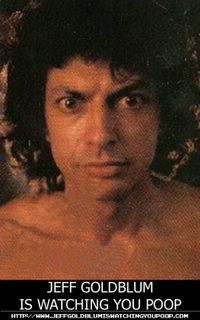If you really want to know what people really think about magic as an art form, think about this little puzzle: If you were in an informal social setting and people found out you were a singer, what are the odds that somebody would ask you to sing right there on the spot? If you were in that same situation and people found out you were an actor, what are the odds that somebody would ask you to act right there on the spot? If you were a comedian, how probable is it that you'd be asked to do part of your stand-up routine?
The answer to all these questions is that the probability is very low. You rarely - if ever - see a singer, an actor, or a comedian doing something from their professional repertoire right out of the blue.
So why are we, as magicians, expected to do so, even though the practitioners of other arts forms aren't?There are many reasons. When I've posed this problem to some magic friends of mine, one indicated that we're to blame. Actors, comedians, and singers, if asked to perform, would refuse; we, on the other hand, seem ready and waiting for such an opportunity to perform. I see two problems with this explanation: first, most people rarely encounter magic, so I don't thin that these people have developed any kind of schema for how magicians usually react and, second, the fact that most people would continue pressing a magician who says no while not doing the same to any other kind of performer means that the problem still exists. I do, however, agree that, once somebody sees a magician agree to such a request, that person will have no problem making such requests again and again.
What other explanations are there then? One is that the public doesn't recognize or understand what magic really is. Laymen know that acting, singing, and stand-up comedy take place on a stage in front of a real audience. There are certain conditions necessary for such art to be born. While these conditions are essentially identical for magic, the public just doesn't get it. Magic is, in many ways, weird and not commonly encountered. Related to this is the fact that most people have encountered magic first in amateur renditions of it: an uncle pulling a quarter out of your ear, a classmate doing the 21 card trick, etc. Thus, magic ceases to be an art to them but a cheap way to get attention or get a laugh. Thus, this puzzle is indicative of a deep misunderstanding of our art, one that needs to be rectified.
The beauty of this puzzle though is that it offers us a unique solution for beginning to rectify such a problem: what if placed ourselves on the level of actors, singers, and stand-up comedians by refusing to perform in public when prompted. What if you said, point-blank, "Magic is a delicate art form that flourishes on stage just like acting and singing. I don't think you'd expect an actor or a singer to perform on the spot; I would hope you would give my art form enough respect that you wouldn't expect the same of me either."
Will anybody actually do this? Probably not. There's a strong ego boost involved with being the center of attention and performing in impromptu situations. What we must recognize is that, while this is good for the individual magician, it is bad for our art as a whole. So what are you going to do about it?





